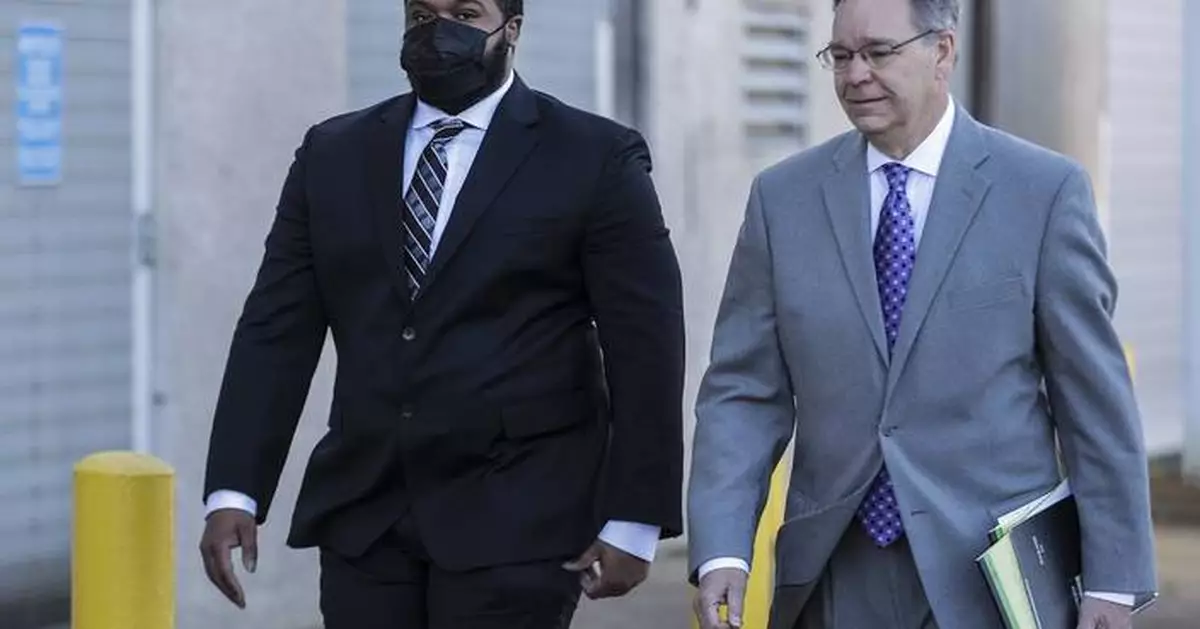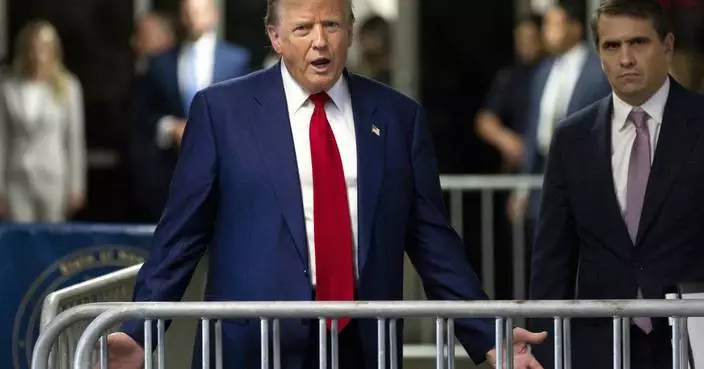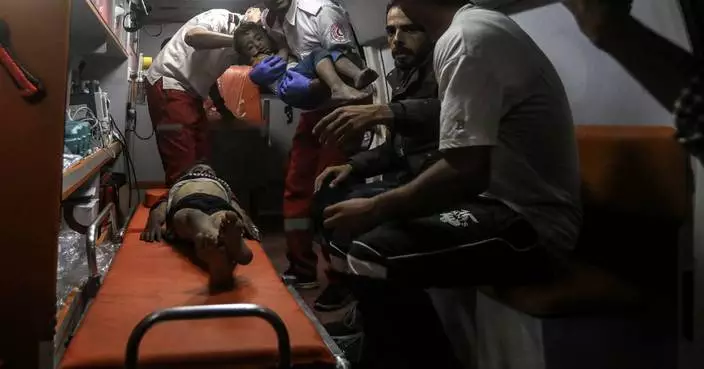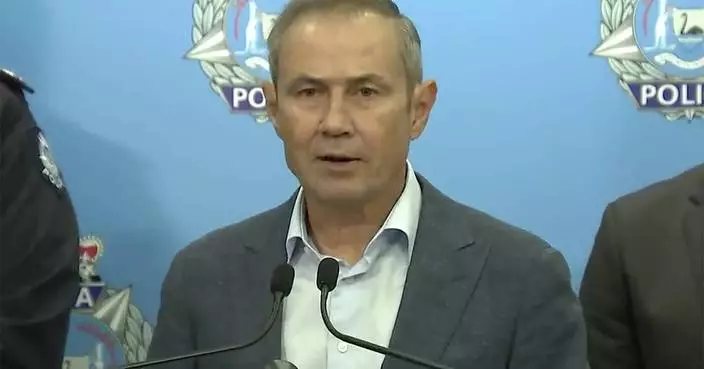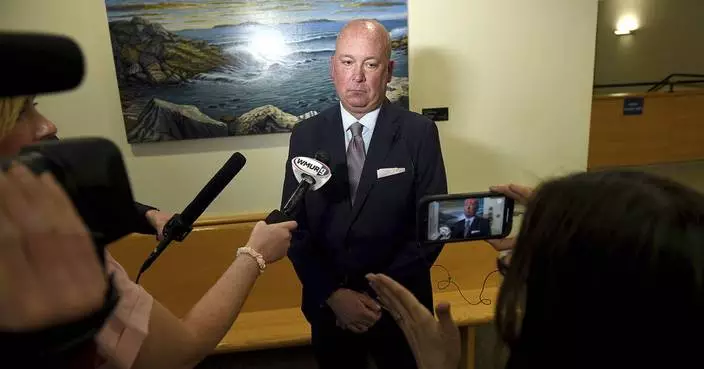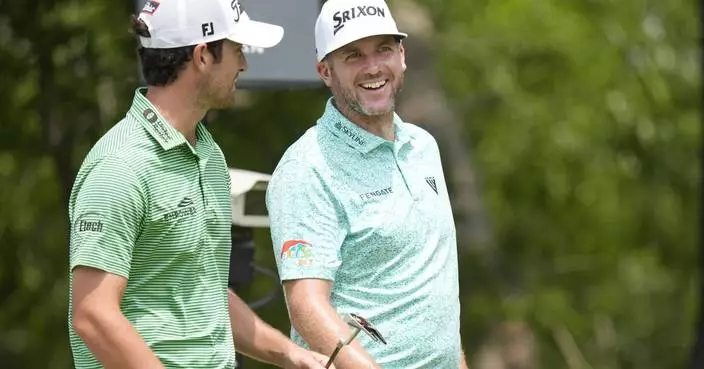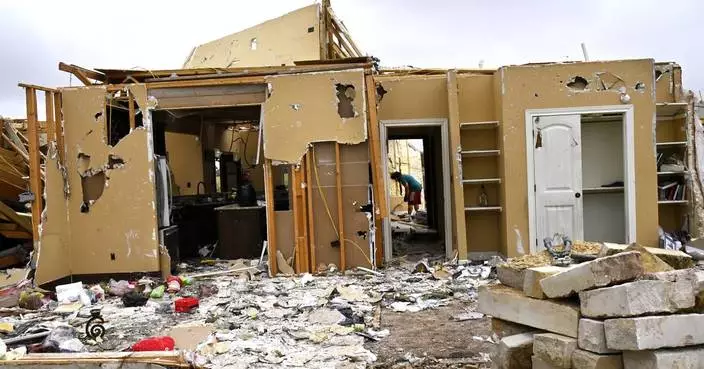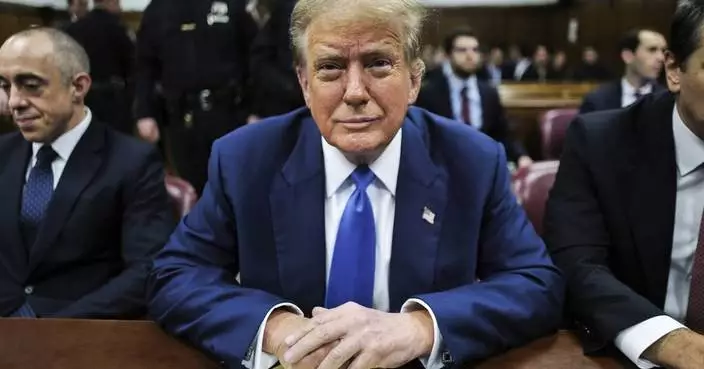MEMPHIS, Tenn. (AP) — The federal trial of four former Memphis police officers charged with civil rights violations in the beating death of Tyre Nichols will be held in the city, a judge ruled Thursday.
During a hearing in federal court, U.S. District Judge Mark S. Norris denied motions filed by defense attorneys to move the trial out of the city or bring in a jury from elsewhere in Tennessee. The attorneys argued that intense news media coverage and the public release of video related to the beating would make it impossible to seat a fair and impartial jury in Memphis, where Nichols died in January 2023.
A document filed by lawyers for one of the officers, Emmitt Martin, said the trial atmosphere in Memphis has been "utterly corrupted by press coverage.” Norris disagreed, saying media coverage and the video release won't bias a Memphis jury against the officers. The judge did say that defense attorneys can file another change of venue motion after potential jurors are questioned about their knowledge of the case.
The police video shows officers yanking Nichols out of his car during a traffic stop on Jan. 7, 2023, after he is pulled over for alleged reckless driving. Nichols is pepper-sprayed and hit with a stun gun, but he manages to get away and run toward his house nearby. Officers catch up with Nichols and punch him, kick him and hit him with a police baton as he yells for his mother, the video shows.
Nichols died three days later at a hospital. The cause of death was blows to the head, according to an autopsy report, which ruled the death a homicide.
Nichols was Black. The five officers also are Black. Memphis’ police chief has said the department couldn’t substantiate any reason for officers to pull Nichols over. The case sparked outrage around the world and intensified calls for police reform in the city and the U.S.
Martin, Tadarrius Bean, Demetrius Haley, Desmond Mills Jr. and Justin Smith were fired after Nichols’ death. They were indicted in September on federal charges that they deprived Nichols of his rights through excessive force and failure to intervene, and obstructed justice through witness tampering. They also have been charged in state court with second-degree murder. The state trial has been delayed until the federal trial is complete.
Mills pleaded guilty to federal charges in November. He also intends to plead guilty in state court and could testify against his four ex-colleagues, who have pleaded not guilty in both cases, his lawyer Blake Ballin has said. The federal trial is scheduled to start Sept. 9.
The criminal case is separate from the U.S. Department of Justice’s “patterns and practices” investigation into how Memphis officers use force and conduct arrests, and whether the department in the majority-Black city engages in racially discriminatory policing.
The Justice Department also has announced a separate review concerning use of force, de-escalation strategies and specialized units within Memphis police.
Nichols’ mother has filed a $550 million lawsuit against the city and its police chief.
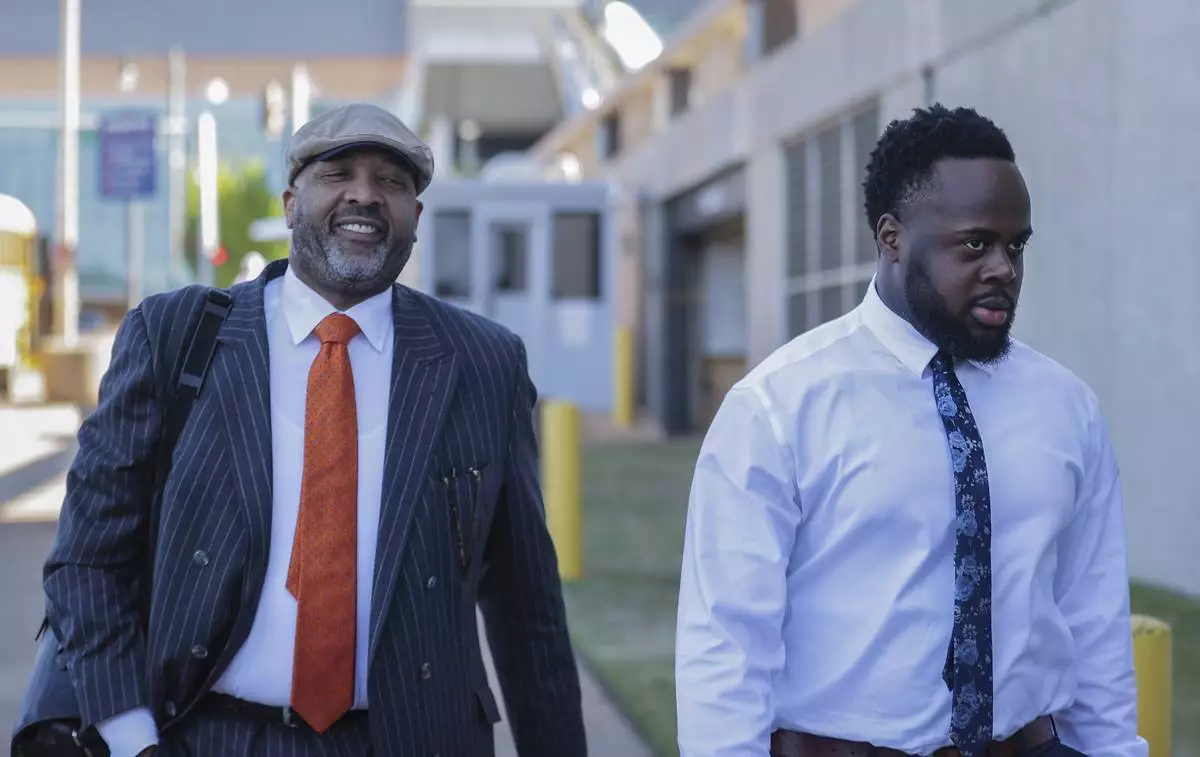
Tadarrius Bean, a former Memphis Police Department officer accused of killing Tyre Nichols last year, walks into federal court with his attorney in Memphis, Tenn., on Thursday, April 4, 2024. The federal trial of four former police officers charged with civil rights violations in the beating death of Tyre Nichols will be held in Memphis, a judge ruled Thursday.(Patrick Lantrip/Daily Memphian via AP)
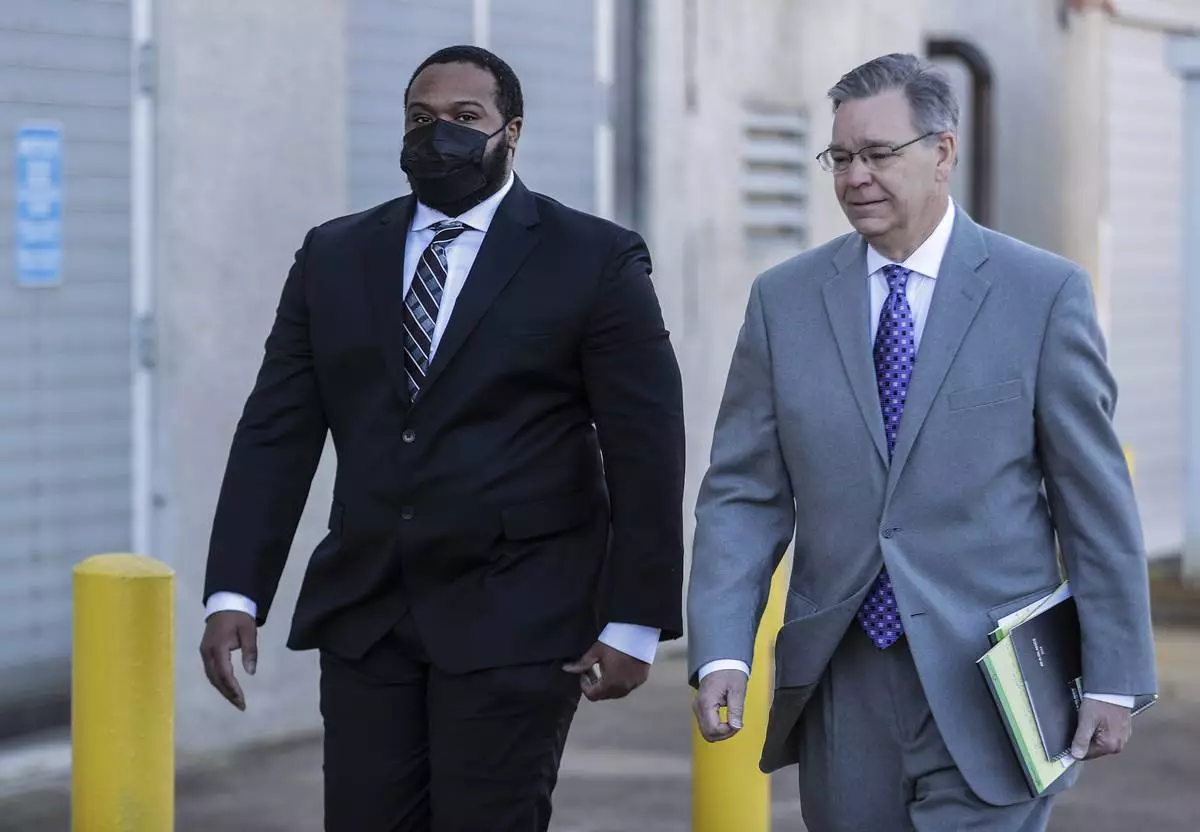
Demetrius Haley, a former Memphis Police Department officer accused of killing Tyre Nichols last year, walks into federal court with attorney in Memphis, Tenn., on Thursday, April 4, 2024. The federal trial of four former police officers charged with civil rights violations in the beating death of Tyre Nichols will be held in Memphis, a judge ruled Thursday. (Patrick Lantrip/Daily Memphian via AP)
NEW YORK (AP) — Donald Trump’s New York criminal trial is full of terms you don’t typically hear in a courtroom.
Centering on allegations Trump falsified his company’s records to conceal the nature of hush money reimbursements, it's the first ever criminal trial of a former U.S. president and the first of Trump’s four indictments to go to trial. It also has some unique terminology.
Here are some examples:
DEFINITION: According to Merriam-Webster, it's money paid so that someone will keep information secret. In other words, money that a person pays someone to hush up something.
EXAMPLE: Three payments that prosecutors say were made on Trump's behalf to bury marital infidelity claims during his 2016 presidential campaign. They are the National Enquirer's $30,000 payment to a Trump Tower doorman and $150,000 payment to former Playboy model Karen McDougal, and the $130,000 that Trump’s then-lawyer and fixer Michael Cohen arranged to pay porn actor Stormy Daniels.
Paying hush money isn't illegal on its own, but authorities say the payments made to suppress stories about Trump amounted to illegal campaign contributions. Cohen pleaded guilty in 2018 to a federal campaign violation, among other unrelated crimes. The National Enquirer's parent company, American Media Inc., entered into a nonprosecution agreement in exchange for its cooperation with prosecutors. The Federal Election Commission fined the company $187,500, declaring that the McDougal deal was a “prohibited corporate in-kind contribution.”
DEFINITION: As prosecutor Matthew Colangelo told jurors in his opening statement, “catch-and-kill” is when a tabloid newspaper such as the National Enquirer “buys up damaging information about someone, demands that the source sign a nondisclosure agreement to prevent them from taking that information or that story anywhere else, and then the tabloid declines to publish the story to prevent it from ever seeing the light of day.” A nondisclosure agreement is also known as a confidentiality agreement.
EXAMPLE: Tabloids typically pay sources and story subjects for information they end up publishing. But sometimes they pay for stories to prevent their publication. Former National Enquirer publisher David Pecker testified that he agreed, at a Trump Tower meeting in August 2015, to be the “eyes and ears” of Trump's 2016 presidential campaign. Under the arrangement, Pecker said he would notify Cohen of women who were seeking to sell stories about Trump so Trump's team could “take them off the market or kill them in some manner.”
Pecker testified that he had suppressed stories about other celebrities and politicians over the years using the same “catch and kill” methods, including actor and ex-California Gov. Arnold Schwarzenegger and golfer Tiger Woods. Pecker said he sometimes suppressed stories simply to help a friend or further his business interests, but often he did so to leverage the story subject into doing something else, like agreeing to an interview or posing for a magazine cover.
DEFINITION: This is the criminal charge that's being decided at Trump's New York trial. He is charged with 34 counts of falsifying business records in the first degree. It is a felony punishable by up to four years in prison, though there is no guarantee Trump would be sentenced to any time if convicted. He has pleaded not guilty.
Under New York law, a person is guilty of falsifying business records in the first degree when he makes or causes a false entry to be made in a company's business records and does so with an intent to defraud, including intent to commit or hide another crime.
EXAMPLE: Prosecutors allege Trump misrepresented payments to Cohen in Trump's company records as legal fees when they were actually a reimbursement for the $130,000 that Cohen arranged to pay Daniels. The records at issue include general ledger entries, invoices and checks. Prosecutors argue Trump's actions were a way of hiding the hush money scheme and concealing other crimes arising from it, including alleged election law violations. Trump denies the allegations. His lawyers have said the payments to Cohen were for legitimate legal expenses.
DEFINITION: Trump isn’t charged with the crime of conspiracy, but prosecutors at his New York trial have used the term repeatedly to describe his “eyes and ears” agreement with Pecker and the hush money arrangements that ensued.
According to Merriam-Webster, conspiring involves joining “in a secret agreement to do an unlawful or wrongful act or an act which becomes unlawful as a result of the secret agreement.” Under New York law, a conspiracy involves at least two people acting with intent to commit a crime.
EXAMPLE: Colangelo, the prosecutor, said in his opening statement that Trump's trial involves “an illegal conspiracy to undermine the integrity of a presidential election.” To convict Trump of felony falsifying business records, prosecutors must show that he had intent to commit another crime. Assistant District Attorney Joshua Steinglass said in court that one of the crimes Trump intended to commit was a violation of a New York election law — a misdemeanor involving a conspiracy to promote or prevent an election.
DEFINITION: Any attempt to alter the outcome of an election through nefarious means, such as fraud, voter intimidation or efforts to overturn the outcome of a race.
EXAMPLE: Prosecutors allege the hush money scheme amounted to election interference because it involved a concerted effort to hide important information from voters in order to boost Trump's chances in the 2016 race.
Not only was the National Enquirer acting as the “eyes and ears” of Trump's campaign, identifying negative stories so they could be suppressed, Pecker testified that the tabloid, at Cohen’s behest, printed stories that tarred Trump’s opponents. It also published stories that boosted Trump's image.
It’s a different kind of election interference allegation from what Trump is charged with in his Washington and Georgia cases, where he’s accused of attempting to subvert his 2020 election loss to Democrat Joe Biden. Meanwhile, Trump claims that being put on trial while he’s campaigning as this year’s presumptive Republican nominee is its own form of election interference.
DEFINITION: Generally speaking, a gag order is “a judicial ruling barring public disclosure or discussion (as by the press) of information related to a case,” according to Merriam-Webster. In Trump’s case, it's known as an Order Restricting Extrajudicial Statements, with extrajudicial meaning outside of court.
EXAMPLE: Judge Juan M. Merchan, acting on a request from prosecutors, imposed a limited gag order on Trump on March 26. It bars the former president from making or directing other people to make public statements on his behalf about potential witnesses regarding their participation in the case. It also prohibits comments about jurors, prosecutors other than District Attorney Alvin Bragg, and any statements meant to interfere with or harass the court’s staff, prosecution team or their families.
Merchan expanded the order on April 1, barring Trump from commenting about his family or Bragg’s family. The change came after Trump assailed the judge’s daughter and made false claims about her on social media.
Last Tuesday, Trump was assessed a $9,000 fine — $1,000 for each of nine separate gag order violations that the judge identified. Prosecutors later requested an additional $4,000 penalty for what they said were additional breaches of the order.
Merchan lamented that $1,000 per violation is the maximum fine allowed by law and floated the possibility of jailing Trump if he continues to run afoul of the gag order, an unprecedented outcome for a former American president.
Trump’s lawyers insist he needs leeway to respond to criticism, including from witnesses like Cohen and Daniels, and that the gag order impedes his ability to answer questions and defend himself amid a crush of media coverage of his case and his candidacy.
Follow Sisak at x.com/mikesisak and send confidential tips by visiting https://www.ap.org/tips
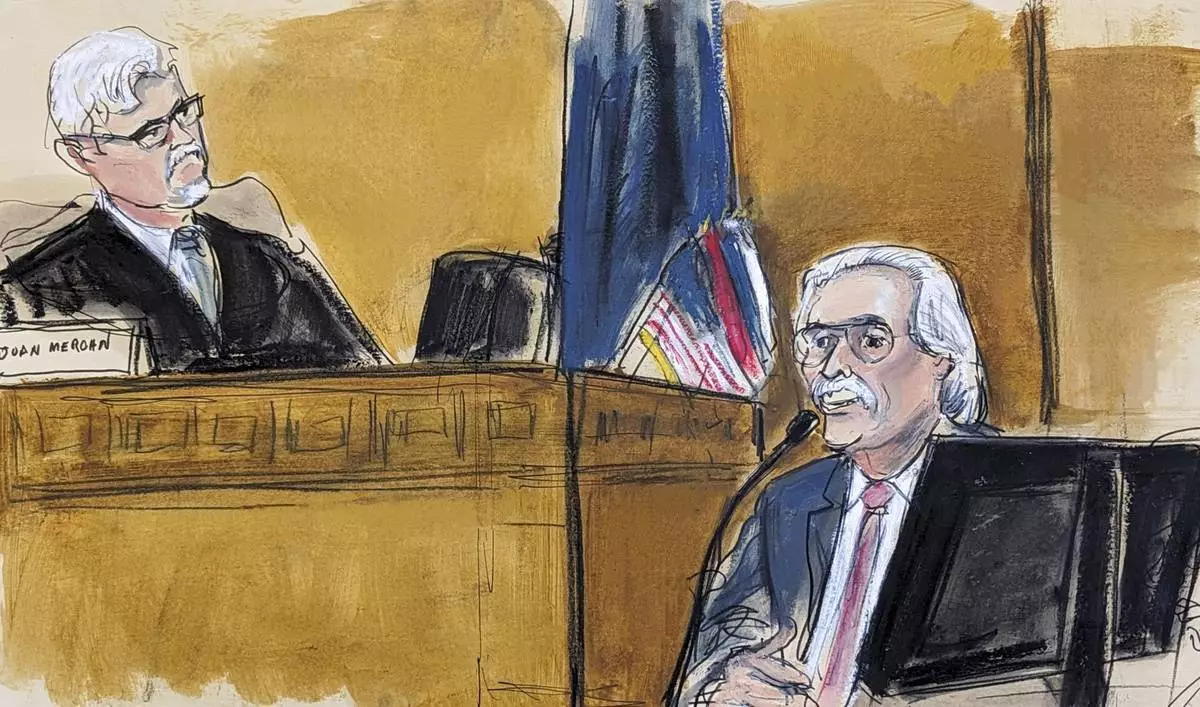
Judge Juan Merchan, left, listens as David Pecker testifies on the witness stand in Manhattan criminal court, Friday, April 26, 2024, in New York. (Elizabeth Williams via AP)
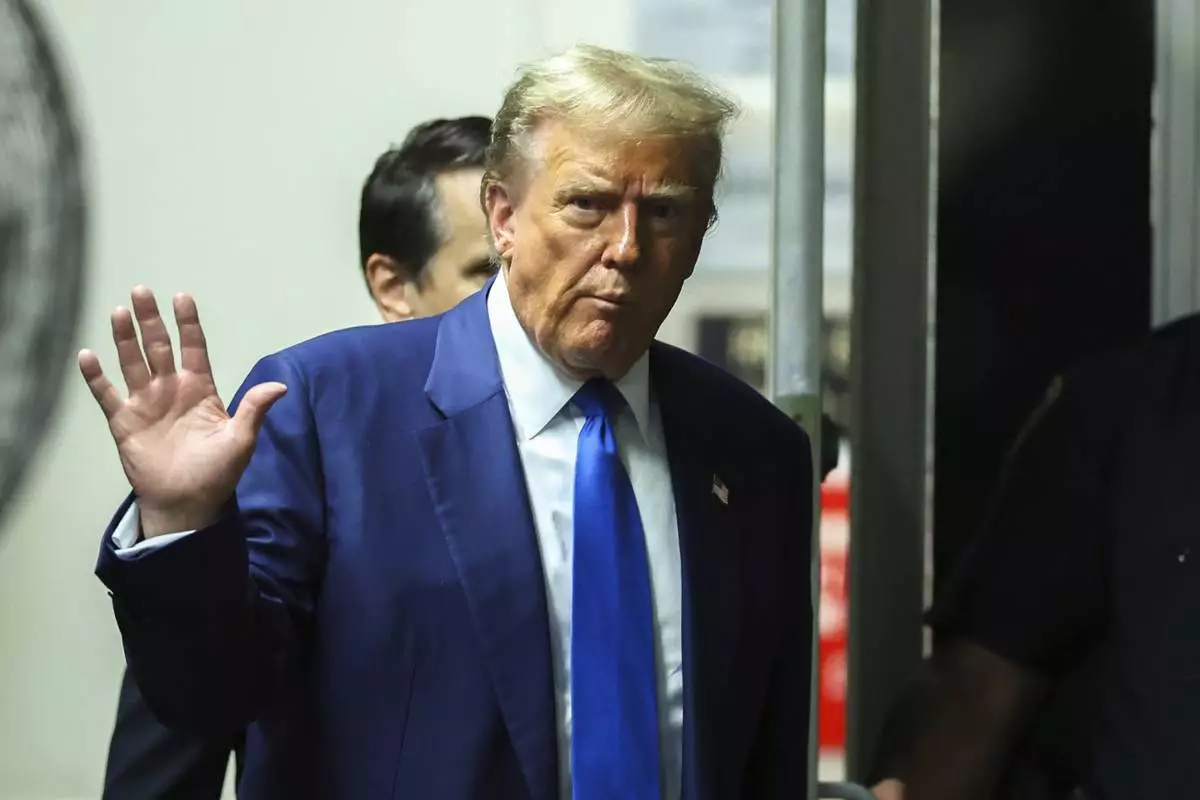
Former President Donald Trump returns to the courtroom following a break in his trial at Manhattan criminal court in New York, on Friday, May 3, 2024. (Charly Triballeau/Pool Photo via AP)
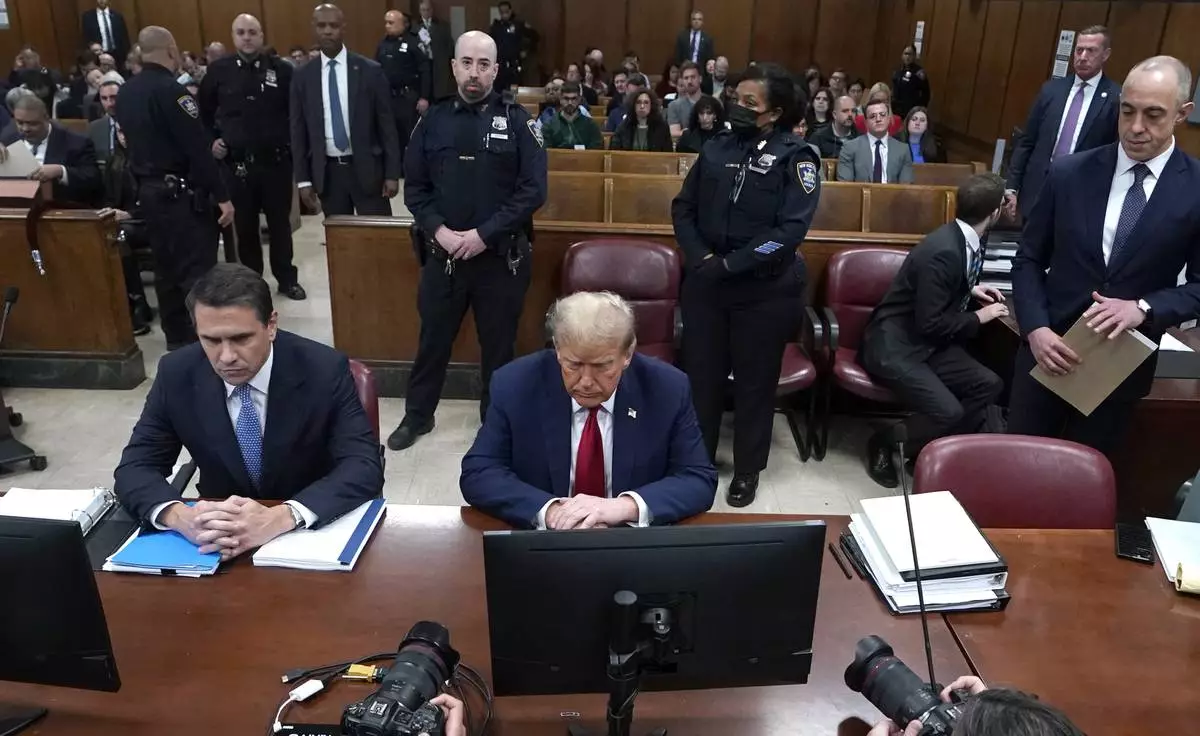
FILE - Former President Donald Trump, with lawyer Todd Blanche, left, attends trial in New York City, April 23, 2024. Trump's New York criminal trial is full of terms you don't typically hear in a courtroom. Centering on allegations Trump falsified his company's records to conceal the nature of hush money reimbursements, it's the first ever criminal trial of a former president and the first of Trump's four indictments to go to trial. (Timothy A. Clary/Pool via AP, File)




